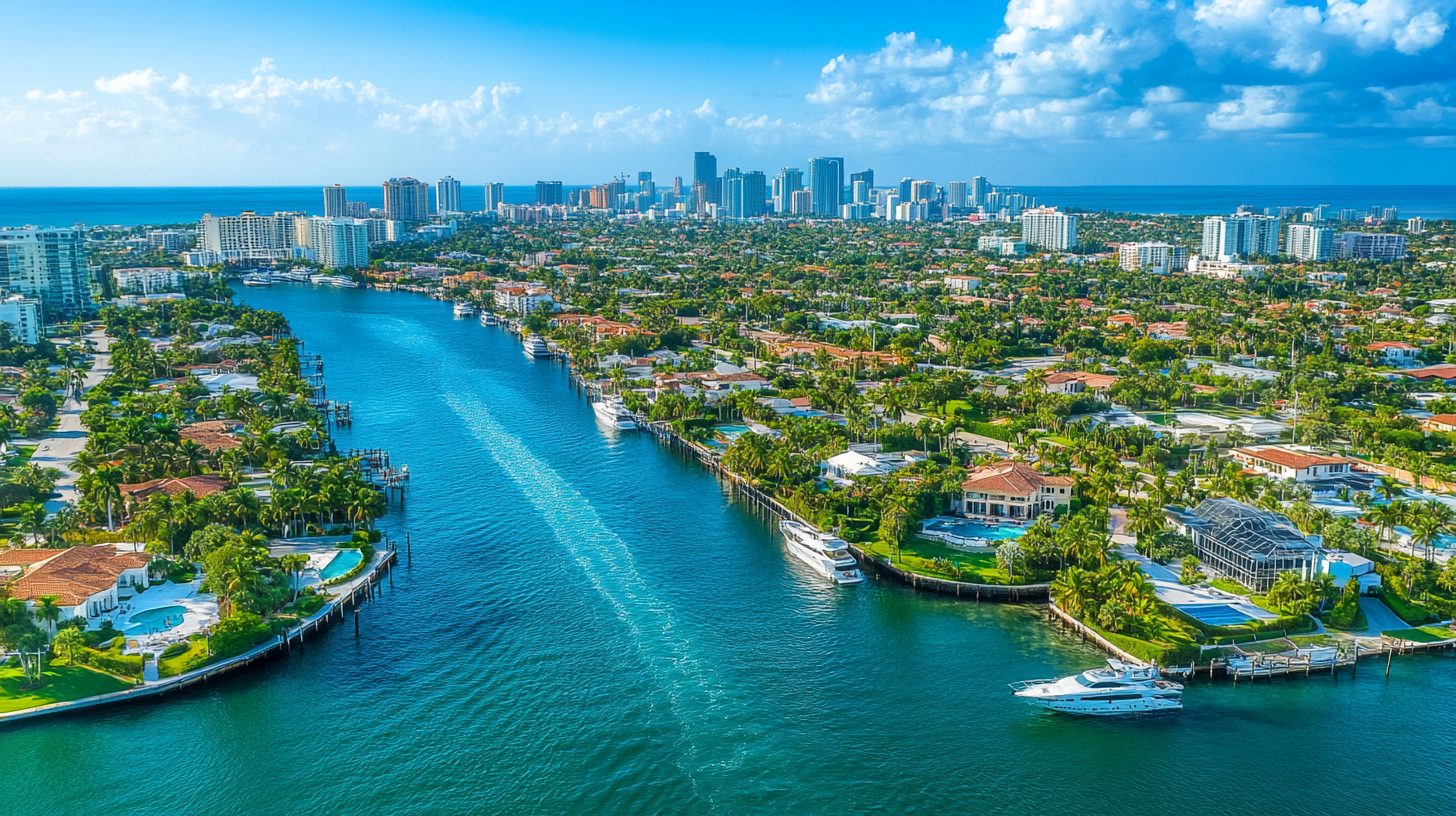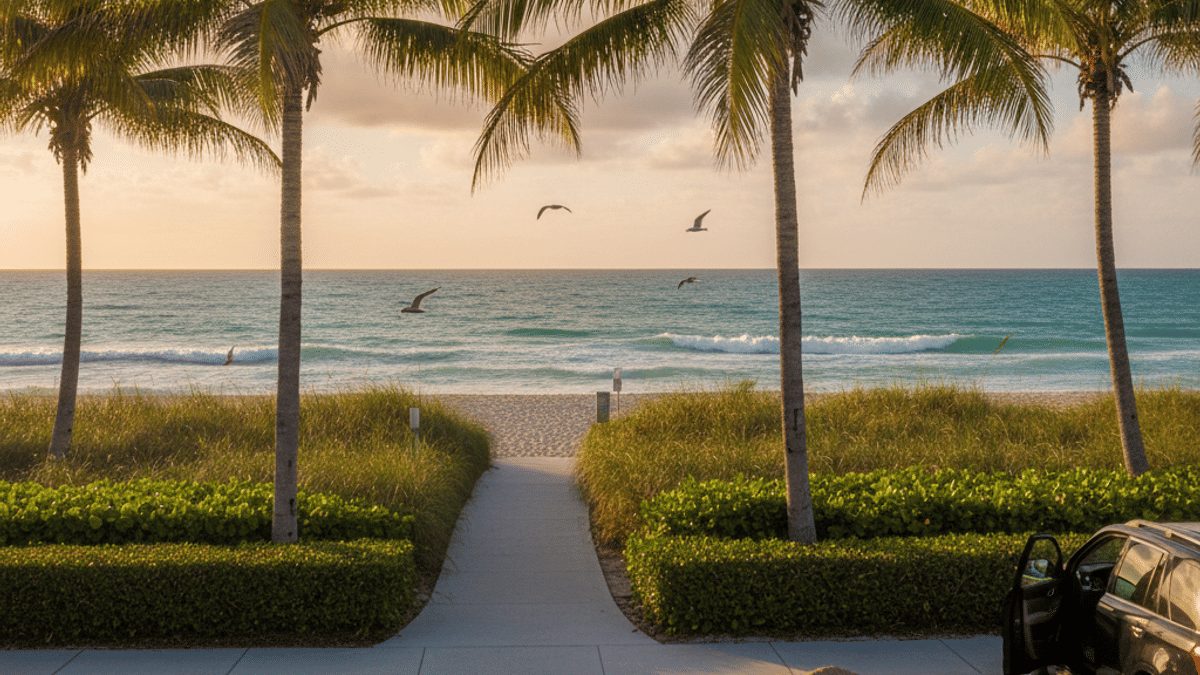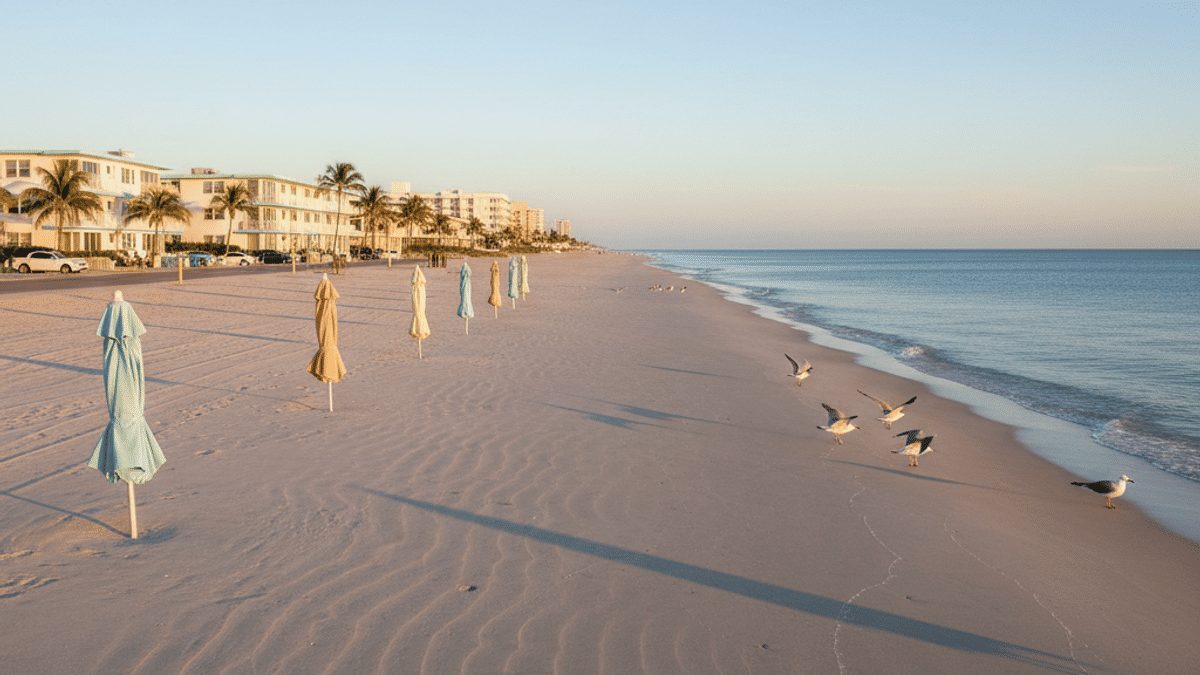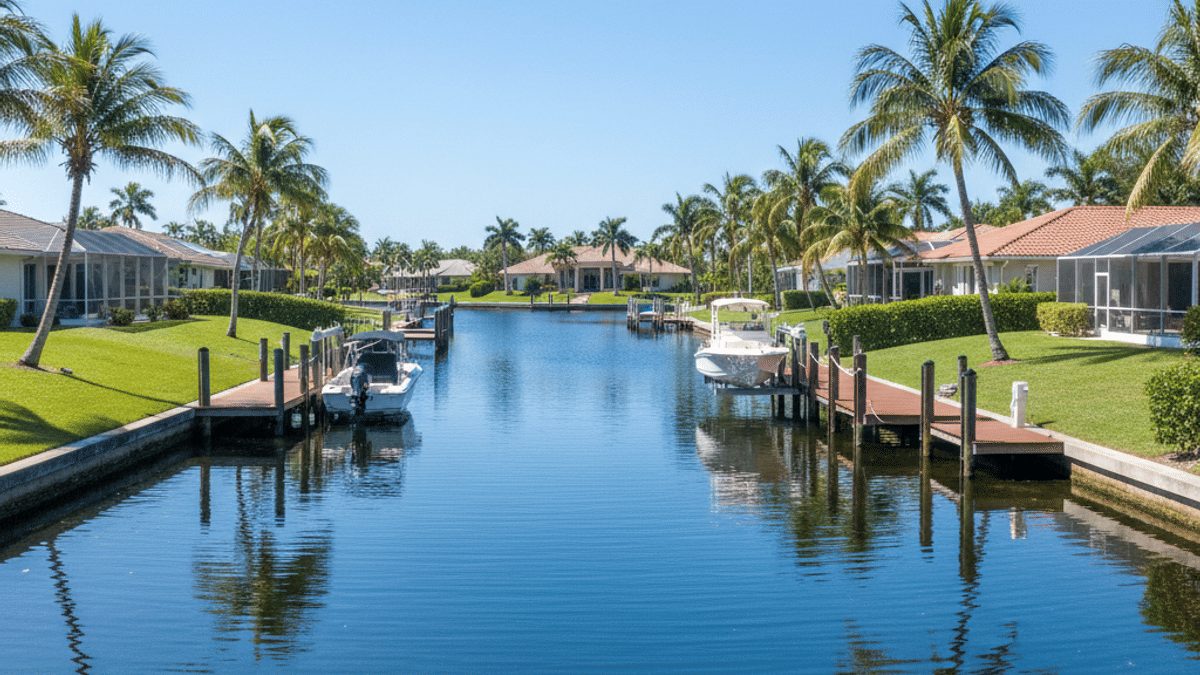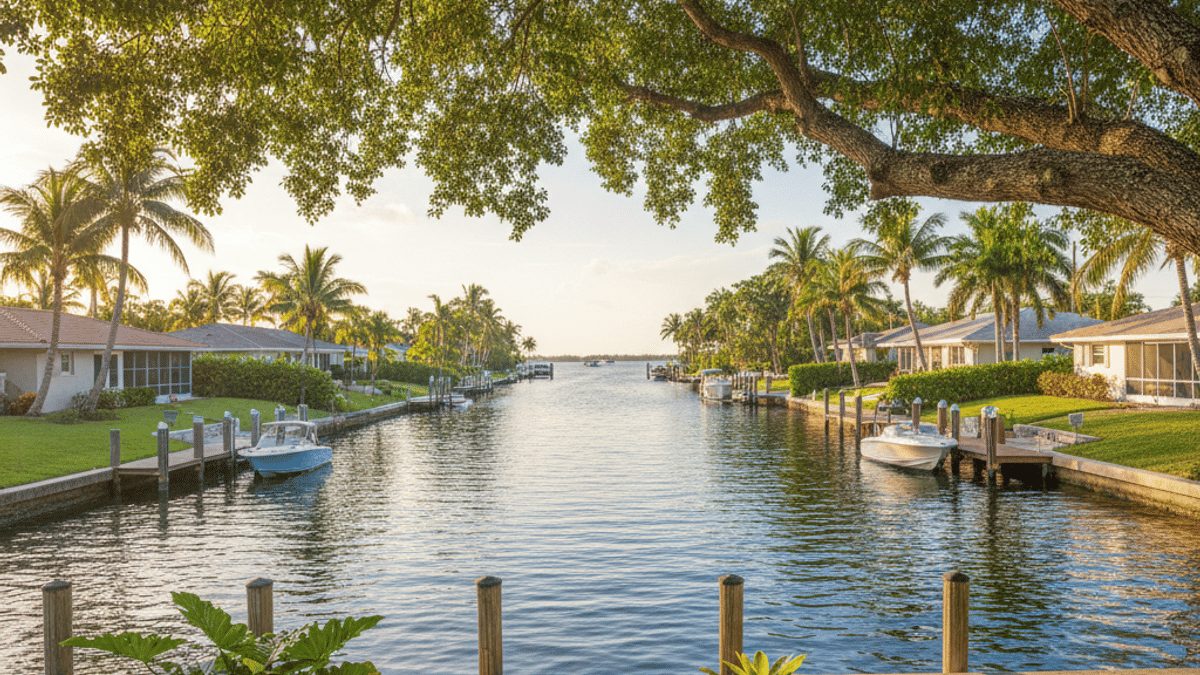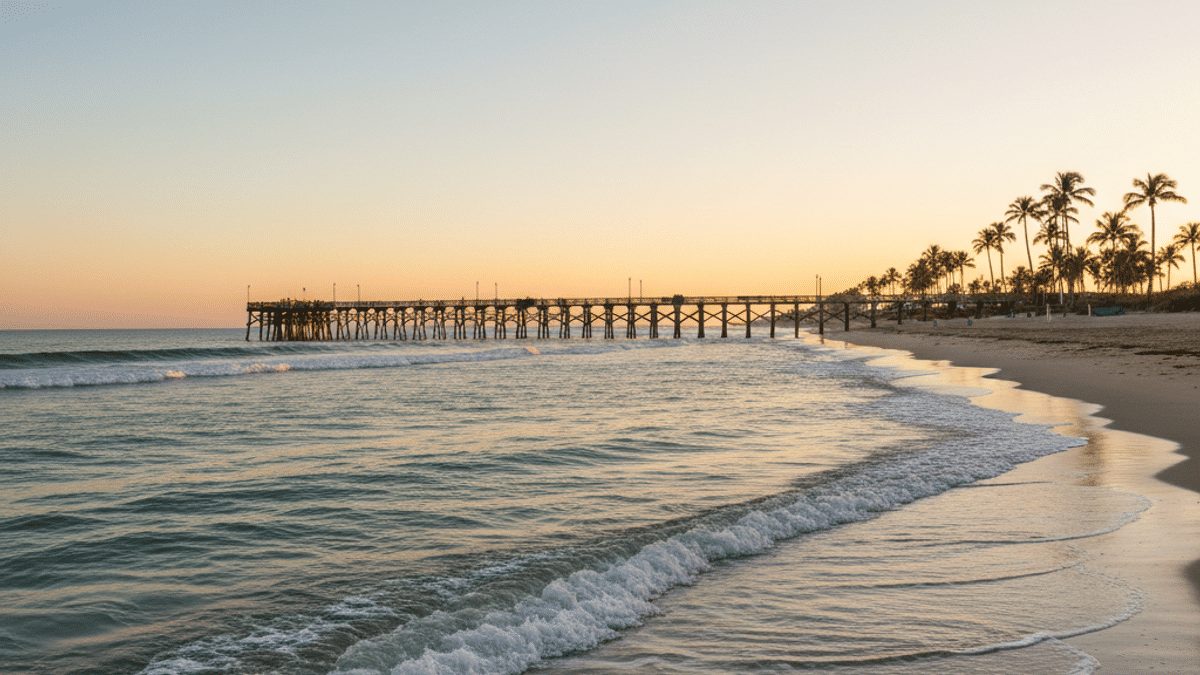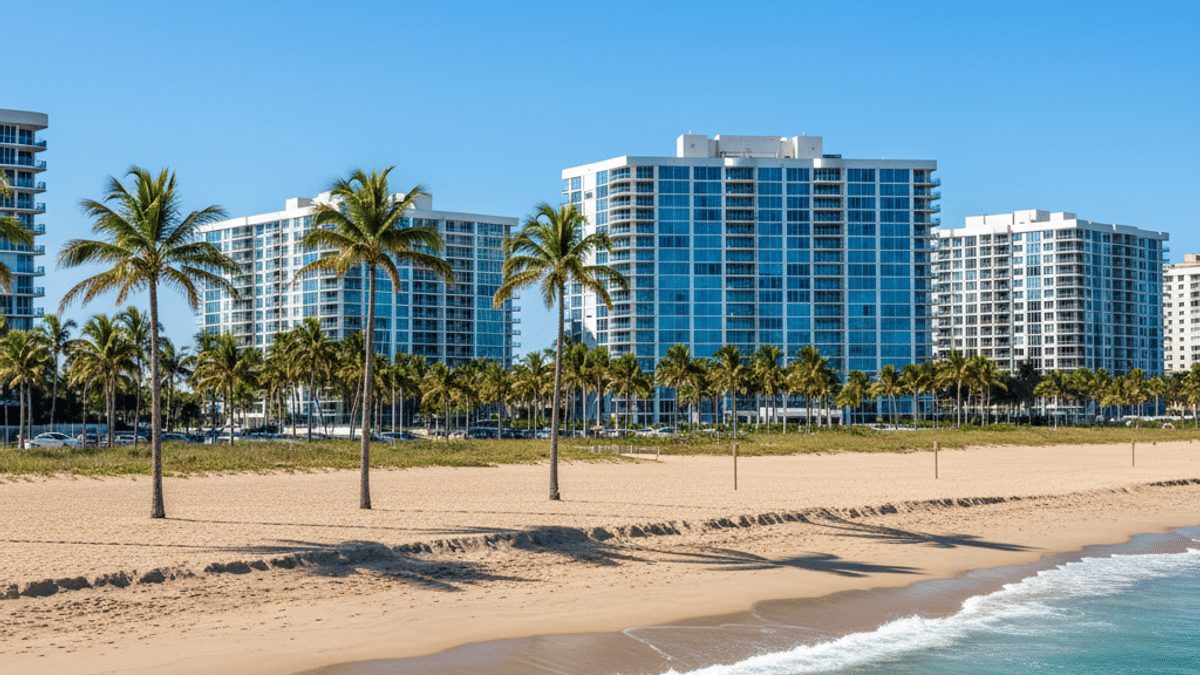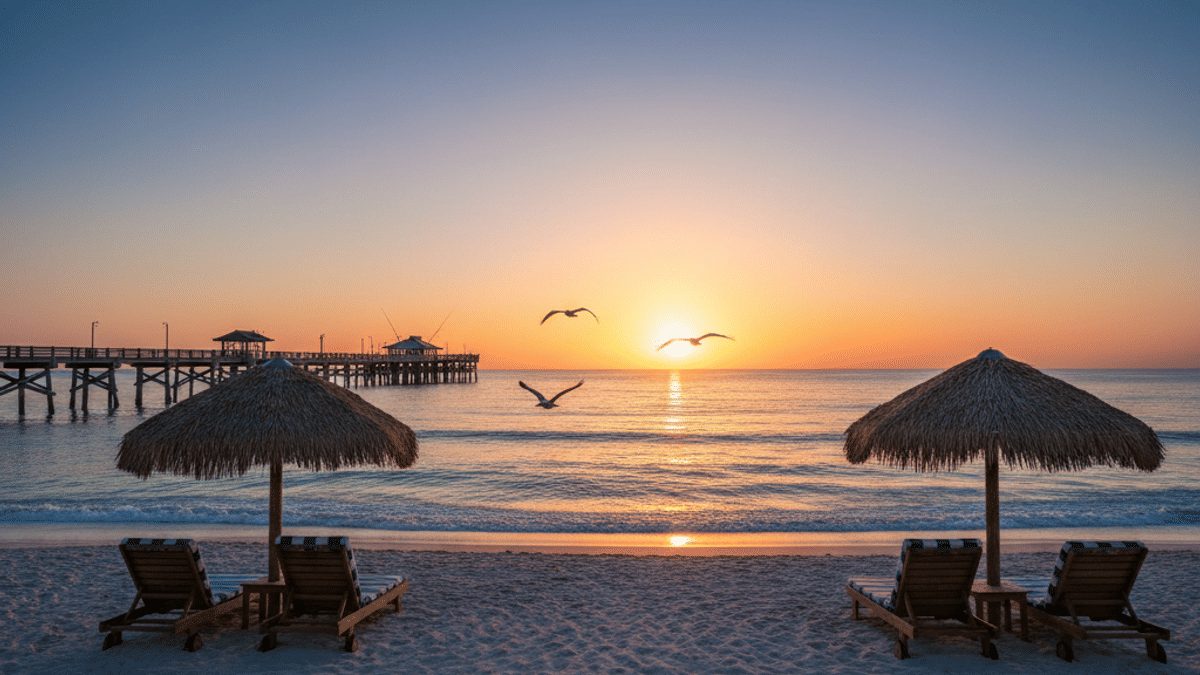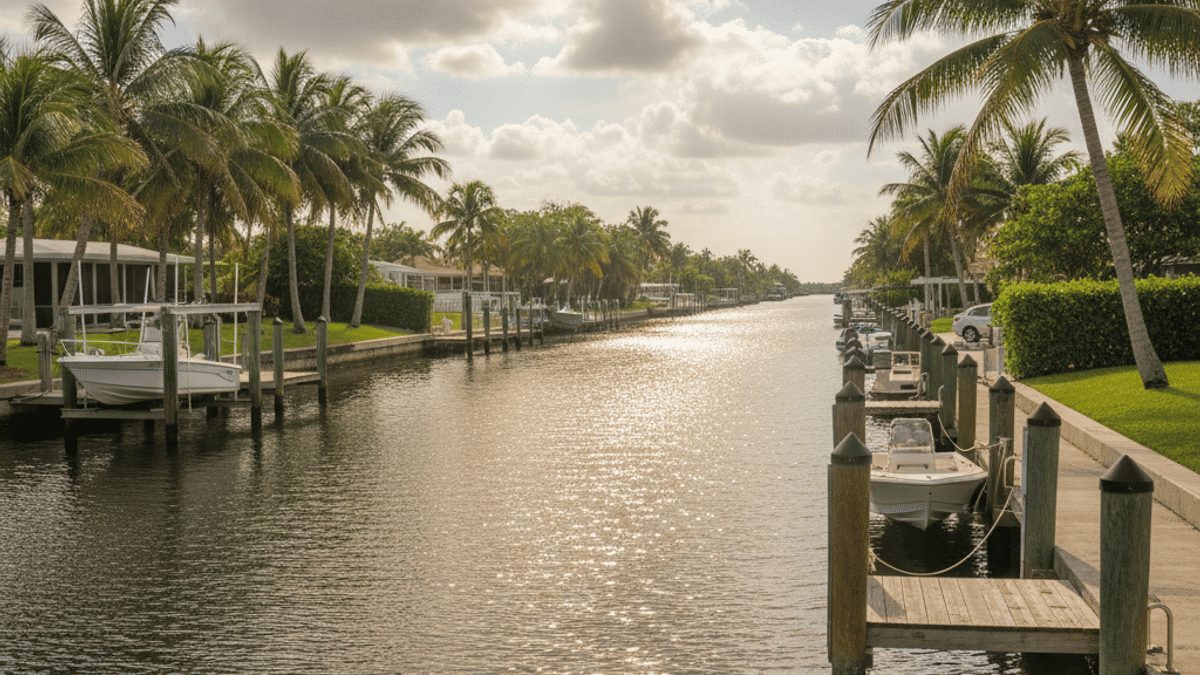Overview
Fort Lauderdale, often overshadowed by its glitzy neighbor Miami, has emerged as a prime relocation spot in 2025. Its population now hovers around 196,000, a noticeable bump from just five years ago—proof that people keep flocking to those sandy beaches and palm-lined boulevards. The local real estate market? Let’s just say it’s hot, with median home prices inching closer to $600k, and while there’s talk of some folks cashing out and heading for cheaper pastures, the overall flow of newcomers hasn’t slowed. Why the influx? Sunshine, water views, and—let’s be real—the no income tax situation doesn’t hurt either. But before you slap on some SPF and sign that lease, let’s dive into the nitty-gritty of what living in Fort Lauderdale really looks like.
Pros of Living in Fort Lauderdale
Sun-Soaked Weather
If you can’t get enough Vitamin D, Fort Lauderdale is a dream. We’re talking roughly 3,000 hours of sunshine a year, with short, mild winters that make your northern friends weep with envy. Weekends are spent on the sand, paddleboarding canals, or just sipping craft cocktails under a tiki hut. In other words, you’re not gonna be hunkering down for snowstorms anytime soon.
Transportation (Beyond Just Driving)
South Florida might be notorious for traffic, but Fort Lauderdale’s got a few tricks up its sleeve. The Brightline train zips you to Miami or West Palm Beach in record time—if it’s running smoothly. Fort Lauderdale-Hollywood International Airport is a stone’s throw from downtown, which means catching a cheap flight to the Caribbean or a cross-country escape is easier here than in many other coastal towns. Meanwhile, the city’s water taxis make for a fun, if slightly touristy, way to zip along the Intracoastal without ever touching the road.
(Relatively) Lower Rents
Alright, let’s not kid ourselves: it’s Florida, so prices are creeping up. But compared to Miami or Palm Beach, Fort Lauderdale rentals can be a smidge more wallet-friendly. If you’re willing to live a bit further inland or snag something older, you might find a decent deal that doesn’t break the bank. Plus, with new apartments popping up like weeds, you’ll have a range of options—from flashy high-rises downtown to breezy beachside bungalows.
No State Income Tax
We can’t mention Florida without cheering for its no state income tax perk. It’s a big reason retirees and remote workers keep coming, banking that extra chunk of change each month. Sure, property taxes and insurance might be hefty, but at least the state isn’t dipping into your paycheck.
Never a Dull Moment
Fort Lauderdale’s cultural scene has quietly been leveling up. Las Olas Boulevard lines up boutiques, galleries, and restaurants that aren’t all tourist traps (shockingly). The art scene is more than just pastel sunsets—monthly art walks, the NSU Art Museum, and a sprinkling of local festivals keep the creative juices flowing. Watersports? Check. Boating? Double check (they don’t call it the “Venice of America” for nothing). And if you do crave that neon Miami nightlife, it’s only about 30 minutes away by car—assuming you’re not leaving on a Friday at 5 p.m.
Laid-Back Vibe (With Big-City Perks Nearby)
One of Fort Lauderdale’s biggest draws is that it’s more chill than Miami, but still close enough to the big city action. You can enjoy a sunrise ocean swim in the morning, skip the high-octane hustle, and then drive down to catch a Heat game in the evening if you like. Folks here take their boat days seriously, but they’re equally content grabbing brunch at a local Cuban cafe. It’s a blend of relaxed beach living and cosmopolitan convenience.
The Foodie Frontier
Sure, Miami steals the spotlight for haute cuisine, but Fort Lauderdale’s restaurant scene is surging. From fresh-off-the-boat seafood joints to hole-in-the-wall taco spots, you can eat around the globe without leaving a 10-mile radius. The farmers markets are on the rise too, so it’s not all chain restaurants and tourist traps.
Bottom Line: If you can handle humidity in exchange for sunshine, appreciate decent (for Florida) transit options, love waterside living, and want a shot at lower (ish) rent and no state income tax, Fort Lauderdale might be your jam.
Cons of Living in Fort Lauderdale
Heat, Humidity & Hurricanes
Florida’s sunshine is legendary, but so are its storms. Hurricane season can be a nerve-wracking, budget-breaking affair—flood shutters, stocking up on supplies, maybe evacuating if a big one’s on the way. And that thick, swampy humidity? It hits hard, especially from June through September. If you hate sweating through your shirt five seconds after stepping outside, you’ve been warned.
Cost of Living Ain’t So Low
Yes, Florida has no income tax. But let’s talk property insurance, especially if you’re anywhere near water. Flood insurance premiums can balloon, thanks to rising sea levels and more intense storms. Grocery bills can also run high, and dining out along the beach can drain your bank account faster than you can say “piña colada.” While it’s not as pricey as Miami, Fort Lauderdale still ain’t the bargain city it was 10 or 15 years ago.
Traffic & Congestion
Between tourist influxes, snowbird migrations, and daily commuters, the roads can turn into a slow-motion nightmare. I-95 is basically a high-speed gamble, and local roads near the beach can clog up with weekend warriors and spring breakers. Public transportation exists but is limited; yes, the Brightline train helps, but it only covers certain routes. If you hate driving or can’t deal with gridlock, you’ll need to master your Zen breathing exercises—or move somewhere else.
Crowds & Tourists
Fort Lauderdale isn’t quite as overrun as Miami Beach, but tourism is still a staple. During spring break, downtown and the beaches fill up with party-hungry college kids. Cruise season can flood the port, airport, and local hotspots with massive crowds. Living here means you’ll constantly share your space with visitors chasing that sunshine fix. That means longer lines at restaurants, congested beaches, and a general “on-vacation” vibe that can clash with your daily routine.
Construction Everywhere
Development is booming. New high-rises downtown, updated infrastructure, expansions along Las Olas… it feels like there’s always a crane on the horizon. While it can signal growth (and potential job opportunities), it also means noise, dust, and the endless clang of construction. If you work from home or crave quiet, the constant building might drive you crazy.
The ‘Seasonal’ Social Scene
In summer, the city can feel a bit emptier—some locals and snowbirds flee the brutal heat. The peak social season really revs up between late fall and early spring, when the weather’s nice and the tourists come in droves. If you like year-round bustle, you’ll see a noticeable ebb and flow. For some, that’s a perk (less traffic in summer), but for others, it can feel like the city’s on pause when it’s too hot to handle.
Environmental Vulnerabilities
Let’s not sugarcoat it: sea-level rise and climate concerns are real here. King Tides can flood streets even on sunny days, and that’s a trend that’s not likely to reverse. If you’re thinking long-term, you’ll need to weigh the risk of future property devaluation, heavier insurance costs, or literal water at your doorstep.
Bottom Line: Fort Lauderdale’s not all fruity drinks and ocean breezes. The heat can be oppressive, hurricanes are a real threat, and crowds + construction can test your patience. Factor in rising costs—especially for flood insurance—and you’ve got yourself a mixed bag that might not be for everyone.
Wrapping Up
Fort Lauderdale is that sweet-spot city on Florida’s Atlantic coast—glamorous in parts, laid-back in others, and undeniably soaked in sunshine. It’s no secret why people move here: the no-income-tax perk, ample outdoor activities, and (comparatively) lower rents than Miami. But the flip side is real: scorching summers, hurricane anxiety, and a cost of living that’s inching upward every year. From crowd-filled beaches to an ever-present hum of new construction, Fort Lauderdale can be an exercise in contrast. If you’re game for a life of sun, sea, and the occasional sweaty commute, this city might have your name on it. Just do your homework (and get good insurance) before you dive in headfirst.
FAQs
- Is Fort Lauderdale cheaper than Miami?
Generally, yes. Rents and home prices tend to be a bit lower, but the gap’s closing, and upscale neighborhoods here can rival Miami’s pricier areas. - How bad is hurricane season?
It can be intense. June through November is prime hurricane time. Most residents prepare with supplies and insurance—flood insurance is often crucial. - What’s the commute like to Miami?
It’s about 30–45 minutes on a good day, longer with traffic. The Brightline train can help, but it’s not a silver bullet for all routes. - Do you really need flood insurance if you’re not on the water?
Many lenders require it if you’re in a flood zone. Even if you’re not, rising sea levels and random street flooding might make it worth considering. - Is the nightlife scene decent here?
Downtown, Las Olas, and the beach strip have plenty of bars and clubs. If you crave ultra-glam parties, Miami’s still just down the road. - Are there family-friendly areas in Fort Lauderdale?
Absolutely. Neighborhoods like Victoria Park, Harbor Beach, and Coral Ridge cater to families, though prices can be high. Suburbs nearby also offer good school districts.
What’s the job market like?
Tourism, hospitality, real estate, and marine industries dominate, with some tech and finance creeping in. If you’re flexible, you can make it work—but it’s not a Silicon Valley or Wall Street.

